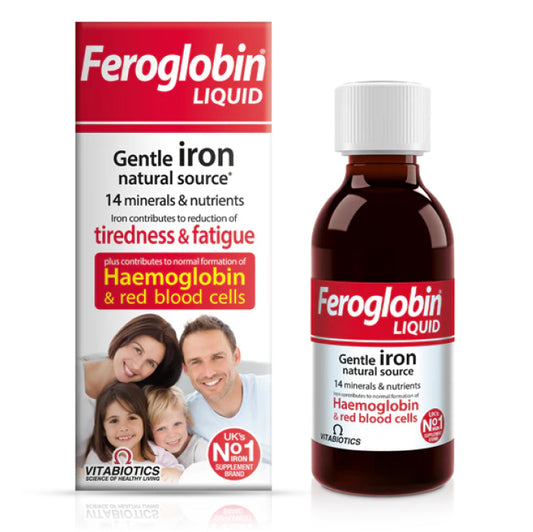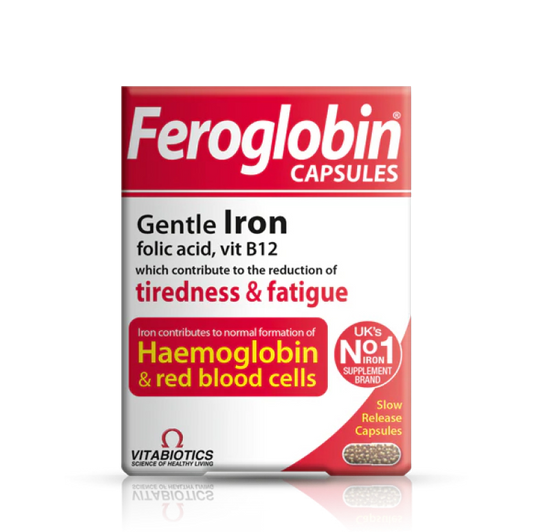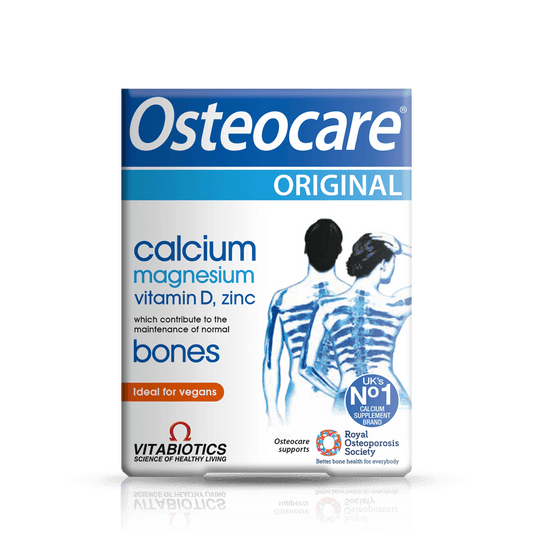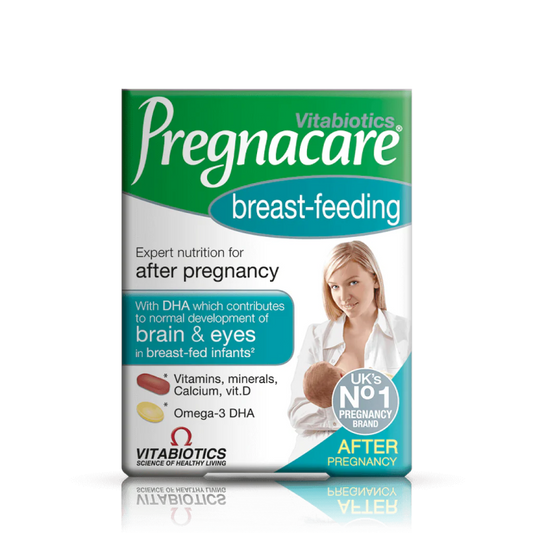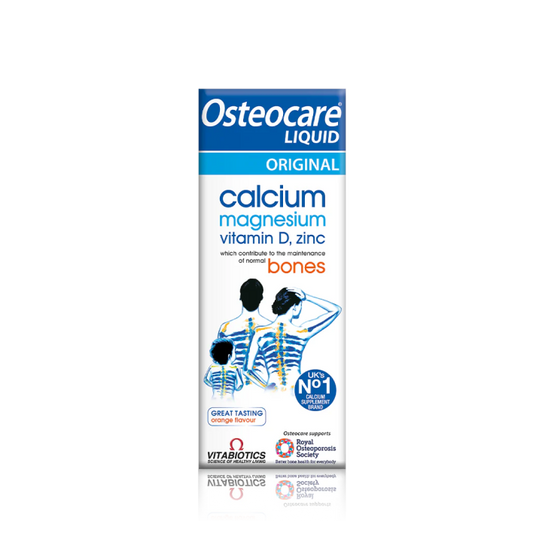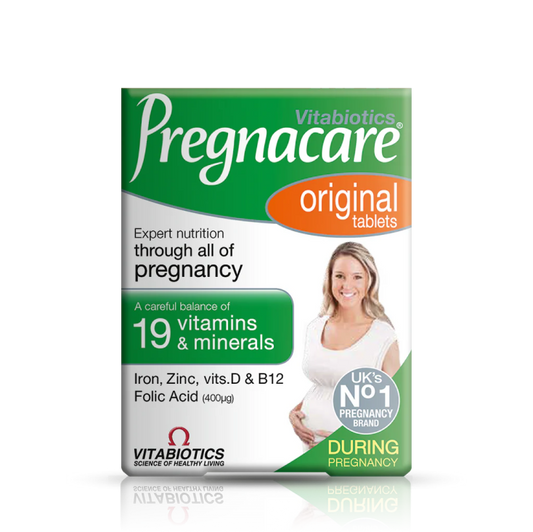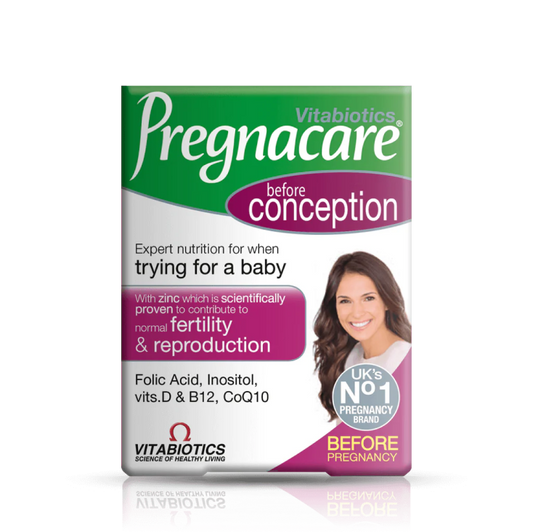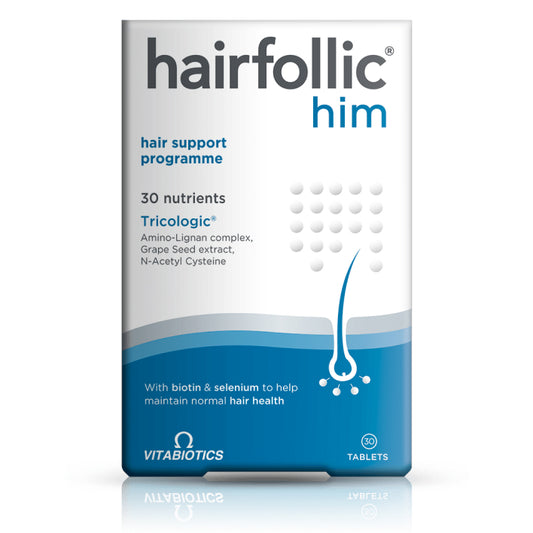Vitamin D and Pregnancy: We Look at the Importance of Vitamin D During Pregnancy
We look at the importance of vitamin D during pregnancy, the vitamin D in Pregnacare supplements, and groundbreaking research on vitamin D in pregnancy, which aims to provide more knowledge about the role of vitamin D and its importance for mothers and babies.
What is vitamin D?
Vitamin D, also known as the "sunshine vitamin," is considered one of the most important vitamins for our bodies, as it helps maintain healthy bones, muscle function, and the immune system, and it also plays a role in cell division. Vitamin D is also the subject of increasing research on various health issues.
Did you know that it's estimated that up to a quarter of all UK residents have low levels of vitamin D, meaning they're at risk of vitamin D deficiency? Vitamin D deficiency is common in many people around the world, but especially so in pregnant women.
How to ensure you get enough vitamin D, especially during pregnancy?
Vitamin D occurs naturally in several foods. These include:
-
Oily fish
-
Mushrooms
-
Eggs
However, it's difficult to get enough vitamin D through diet alone. The best source of vitamin D is summer sun on our skin, but in addition to the need to protect our skin from the sun, it's difficult to do so during the gloomy winter months.
The UK Department of Health advises everyone to consider taking daily vitamin D supplements, including pregnant women, breastfeeding mothers and children, especially during the less sunny months from October to March.
Vitamin D in Pregnacare supplements
Pregnant and breastfeeding women are recommended to take 10 µg of vitamin D daily. The Pregnacare range from Vitabiotics is specifically designed for pregnant women and helps ensure a daily intake of important nutrients. Each product in the "During Pregnancy" and "After Pregnancy" ranges contains 10 µg of vitamin D.
This includes:
-
Vitabiotics Pregnacare® Original , Pregnacare Liquid , Pregnacare Plus , Pregnacare Max and Pregnacare Gummies , which contain the recommended 10 μg of vitamin D.
-
And if you are breastfeeding, Vitabiotics Pregnacare® Breast-feeding contains the recommended 10 μg of vitamin D.
When to start taking vitamin D during pregnancy?
When it comes to when to start taking vitamin D during pregnancy, the UK Department of Health recommends that all women consider taking a daily vitamin D supplement, especially during the less sunny months of October to March.
If you are not taking vitamin D when you discover you are pregnant, start taking it as soon as possible.
What is the role of vitamin D in pregnancy?
Doctors have, for the first time, investigated the role of vitamin D in pregnancy and its importance for both mother and child. The research was supported by Wellbeing of Women, a charity dedicated to medical research for women and children.
Recent research by Dr Jennifer Tamblyn from the University of Birmingham has shown that vitamin D not only supports the bone health of the mother and the developing baby, but also plays an important role in maintaining the health of the placenta, which provides the baby with essential nutrients.
Studies have shown that immune cells in the placenta respond to vitamin D, and in the case of vitamin D deficiency, the placenta does not function properly.
When the placenta doesn't function effectively, women can experience complications like preeclampsia, miscarriage, and premature birth, suggesting that simple vitamin D supplementation may be as important for baby health as taking folic acid.
Professor Martin Hewison, who led the vitamin D research, said: "This is unique research. For the first time, we are focusing on how important vitamin D is for the health of both mother and baby, establishing its vital role in controlling placental function. We knew that taking vitamin D later in pregnancy was important for the development of the fetus's skeleton, but we now believe that taking vitamin D supplements very early in pregnancy, or even before conception, can help protect against pre-eclampsia and other pregnancy complications such as growth restriction and even miscarriage."
To support this important research into the role of vitamin D in pregnancy, Pregnacare has partnered with Wellbeing of Women to fund medical research aimed at finding better treatments and therapies to help save and improve the lives of women and children. This crucial support also allows Wellbeing of Women to invest in further research projects that will enable more women to have healthy pregnancies, fight gynecological cancers, and enjoy a better quality of life.
Calcium during pregnancy
Bone health is important for all of us, and in addition to vitamin D, adequate calcium intake is important for maintaining healthy bones and teeth during pregnancy and breastfeeding, as a growing baby and a breastfed baby require greater calcium supplies from the mother.
Food sources of calcium include milk, cheese and other dairy products, green leafy vegetables such as kale, breads and any products made with enriched flour.
In the Pregnacare series , Pregnacare Max supplements intended for use during pregnancy contain 500 mg of calcium, which helps maintain healthy bones and teeth. Pregnacare Breastfeeding supplements intended for use after childbirth contain 700 mg of calcium, and Pregnacare New Mum contains 400 mg of calcium.
Osteocare supplements are a specially formulated source of calcium with cofactors that help maintain healthy bones. You may be wondering whether you can take Osteocare during pregnancy and whether Osteocare is safe during pregnancy. Osteocare is safe to use during pregnancy if you have been advised to take it or feel you may need to increase your calcium intake. Osteocare is available in various forms; try Original, Liquid, Fizz, or Chewable tablets. You can also take Osteocare alongside Pregnacare supplements, although this is not necessary with Pregnacare Max and Pregnacare Breastfeeding, which contain additional calcium.


